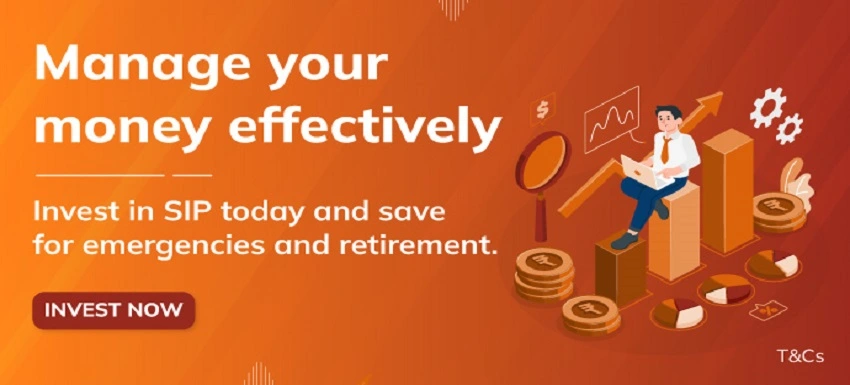THE
ORANGE
HUB
Things To Remember Before Redeeming Your Mutual Fund Investments

The act of redemption in Mutual Funds is often the result of investor reaction. Investors may redeem impulsively due to a rise in their investments' value or may react to market volatility. However, much like hasty investments, unplanned redemptions can lead to financial challenges. Before going ahead with the redemption of Mutual Funds, investors must consider certain factors.
Opportunity Loss
Investors often incur losses by reacting to market fluctuations or hesitating during volatile times. In equities, patience prevails. Long-term, patient investors grow their wealth, weathering storms and benefiting from the Systematic Investment Plan (SIP) approach. This strategy involves buying more units when markets dip and fewer when they rise. Over time, this balances the average cost of acquiring Mutual Fund units. Stay invested, capitalise on compounding and follow the market movements.
When You Leave Too Early
Consider the case of an investor who initiates long-term investments but abruptly halts after a brief period. Imagine beginning a Rs 1,000 SIP in BSE Sensex in January 2005 with a five-year horizon. However, market fluctuations in the second month trigger anxiety, leading to discontinuation in April.
Month |
Cumulative Investment Amount (?) |
Investment Value (?) |
Monthly Gain/Loss |
Jan-05 |
1,000 |
1,000.00 |
0.00 |
Feb-05 |
2,000 |
2,024.09 |
24.09 |
Mar-05 |
3,000 |
2,957.45 |
-42.55 |
Apr-05 |
4,000 |
3,803.32 |
-196.68 |
May-05 |
5,000 |
5,149.80 |
149.80 |
Jun-05 |
6,000 |
6,516.95 |
516.95 |
Jul-05 |
7,000 |
7,916.97 |
916.97 |
Aug-05 |
8,000 |
9,093.25 |
1,093.25 |
This is the impact of prematurely curtailing investments due to market volatility. If the investor had persevered for eight months, a 13% upside would have fortified confidence in long-term investing.
When You Leave at The First Big Fall
Consider the journey of an investor who invested in a five-year SIP in BSE Sensex from January 2005 to December 2009.
Despite a dip in SIP value in April 2006, the investor persisted, benefiting from the subsequent market upswing. However, faced with declining monthly gains between December 2007 and March 2008. The investor exited in February 2008.
While never experiencing a loss, the investor's impatience led to missing potential gains. Had the investor stayed, the notional loss would have been insignificant.
Month |
Cumulative Investment (?) |
Value of SIP (?) |
Month-on-month Difference |
Nov-07 |
35,000 |
65,678.32 |
- |
Dec-07 |
36,000 |
69,811.77 |
4,133.45 |
Jan-08 |
37,000 |
61,732.90 |
-8,078.87 |
Feb-08 |
38,000 |
62,488.08 |
755.18 |
Mar-08 |
39,000 |
56,612.19 |
-5,875.90 |
Apr-08 |
40,000 |
63,557.20 |
6,945.02 |
When You Panic Due to Sustained Loss
Consider the example of stock markets soaring from April to December 2007 before plunging from October 2008 to March 2009. This critical 6-month phase witnessed SIP investments falling below the invested sums. Staying invested during such downturns tests even seasoned investors' nerves.
However, there's an upside for those who ride out market cycles. Suppose an investor maintains the 60-month investment time frame. In the end, the Rs 60,000 investment would be worth Rs 91,786 — a significant 52% increase.
Unplanned Reinvesting
Some investors exit during market dips, hoping to reinvest later for better gains. Consider a scenario from January 2010 to December 2014, marked by volatility. An investor exiting in July 2011 and reinvesting from September 2012 to December 2014 might seem strategic. However, the pause in investment could result in missed opportunities for averaging and compounding. Staying invested throughout different market cycles offers the benefits of emotional stability, averaging and compounding, ultimately contributing to higher returns. In the long run, strategic SIP investments demonstrate resilience over market fluctuations.
Pause effect (XIRR):
January 2010 to December 2014: 15.13%
January 2010 to July 2011: 6.40%
January 2010 to July 2011 + September 2012 to December 2014: 14.08%
Tax Implications and Redemptions
Your investments should align with evolving tax efficiency. Consider the impact of short-term and long-term capital gains on your redemptions. While long-term capital gains on equity funds now incur a 10% tax on gains exceeding Rs 1 lakh, short-term gains can be mitigated by holding onto your investments for over a year. Rushing to redeem before a year might subject you to a 15% Short Term Capital Gains (STCG) tax.
For instance, redeeming a Rs 1 lakh equity investment after 10 months with a Rs 20,000 gain incurs a 15% STCG tax, reducing your post-tax value by Rs 3,000. Waiting two more months doesn't change the gain but lowers the tax to a 10% Long Term Capital Gains (LTCG) tax of Rs 2,000. Post-tax, your Rs 1 lakh investment is worth Rs 1.18 lakh.
Idling Balance
Redemption can backfire when funds sit idly in a bank account, earning less interest. This affects the redeemed sum adversely, as it could fare better in short-term debt or liquid funds. Additionally, leaving the redeemed amount in the Bank might lead to cumulative interest exceeding Rs 10,000, incurring taxes. Well-planned redemptions mitigate such avoidable scenarios.
Conclusion
Investors have the power to make redemption work in their favour. Understanding potential scenarios and their impact on financial goals is paramount. Before hitting that redemption button, consider the reasons. If clarity is lacking, staying invested until a clear exit signal emerges remains a wise strategy.
FAQs
1. What is SIP redemption?
SIP redemption entails selling your Mutual Fund units, converting them into cash based on the current market value.
2. When is a good time to redeem SIPs?
Redeem SIPs when financial goals are met or re-evaluate during market highs for potential gains.
3. How do I withdraw money from SIPs?
Withdraw money from SIPs by submitting a redemption request through the respective Mutual Fund platform.
4. What happens if I redeem Mutual Funds?
Redeeming Mutual Funds converts your holdings into cash, affecting your portfolio's composition and market exposure.
5. Is it better to switch or redeem Mutual Funds?
Choosing between switching and redeeming depends on your investment strategy and long-term financial goals. Assess the impact on your portfolio before deciding.
Scroll to top











